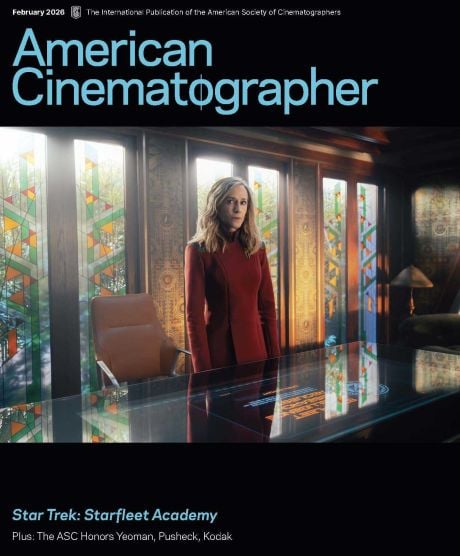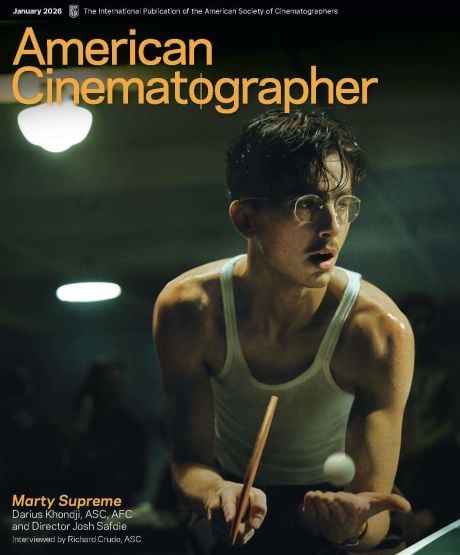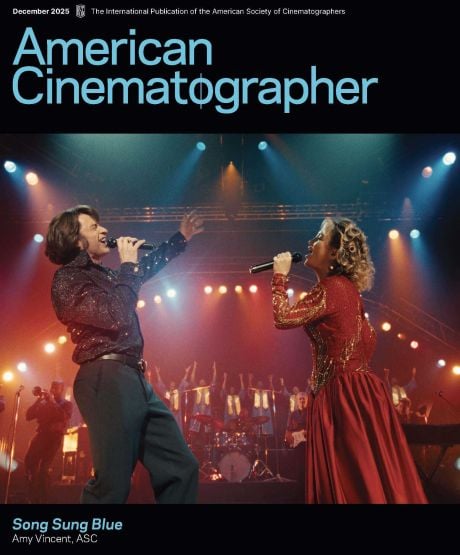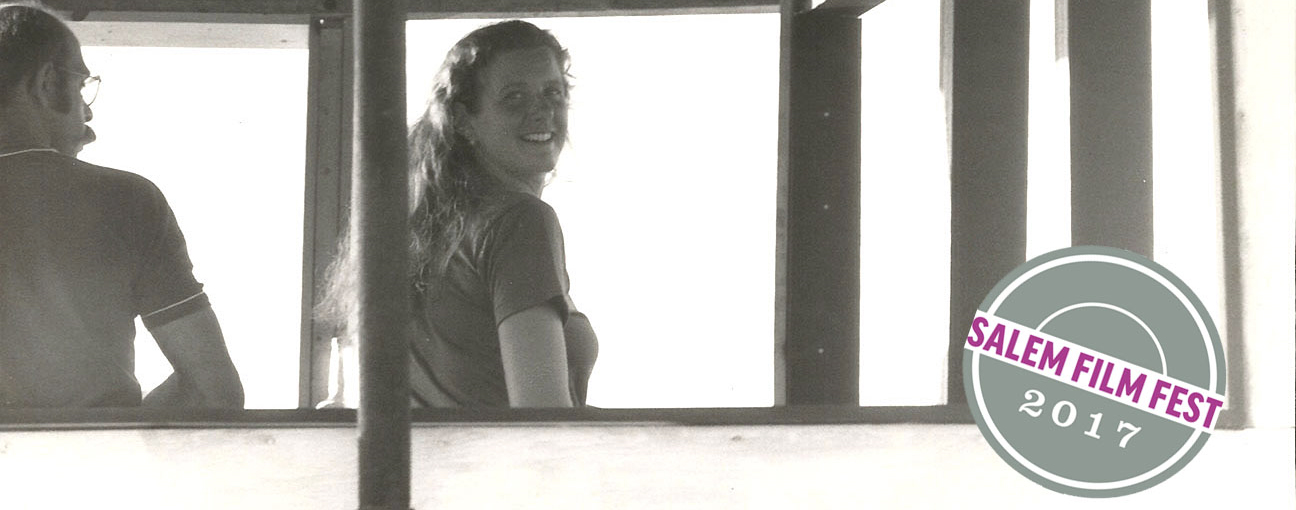
God Knows Where I Am Takes AC Award for Cinematography at Salem Film Fest
Over 6,500 filmgoers attended the New England event, known for presenting a rich and diverse collection of documentary films from all over the world. Some 75 feature and short films were screened.
The Salem Film Fest (March 2-9) recently celebrated its 10th anniversary. Over 6,500 filmgoers attended the New England event, known for presenting a rich and diverse collection of documentary films from all over the world. Some 75 feature and short films were screened, complimented by events that ranged from pre-screening concerts to post-screening Q&As with filmmakers and film subjects, and sponsored community outreach programs in Beverly and Salem.
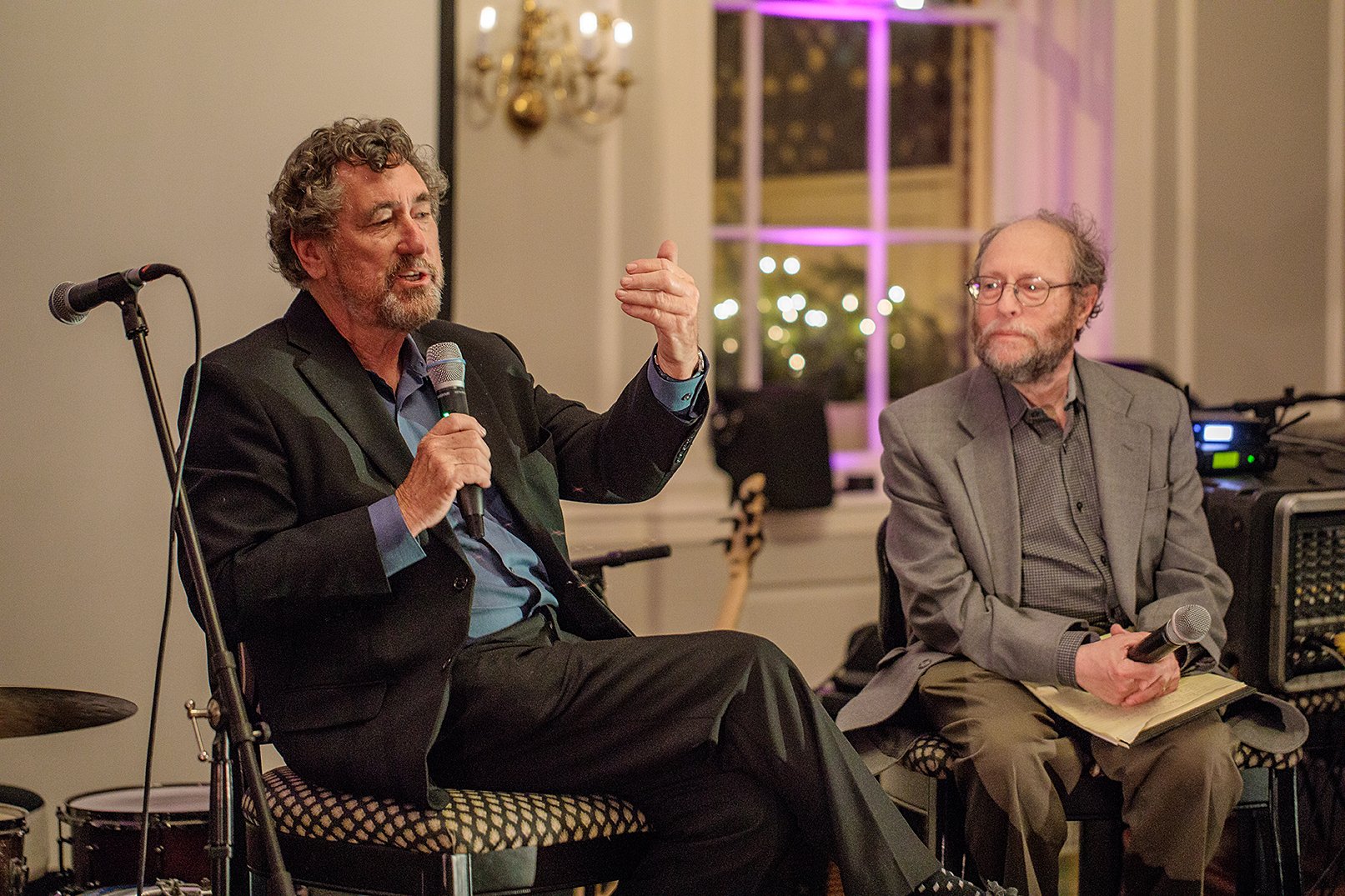
“It’s been gratifying to see the community respond so enthusiastically to our slate of documentaries this year,” said SFF co-founder Paul Van Ness. “Total attendance was up 6% over last year, which was our previous most-well-attended year. It also feels like it was one of the most fun festivals yet.”
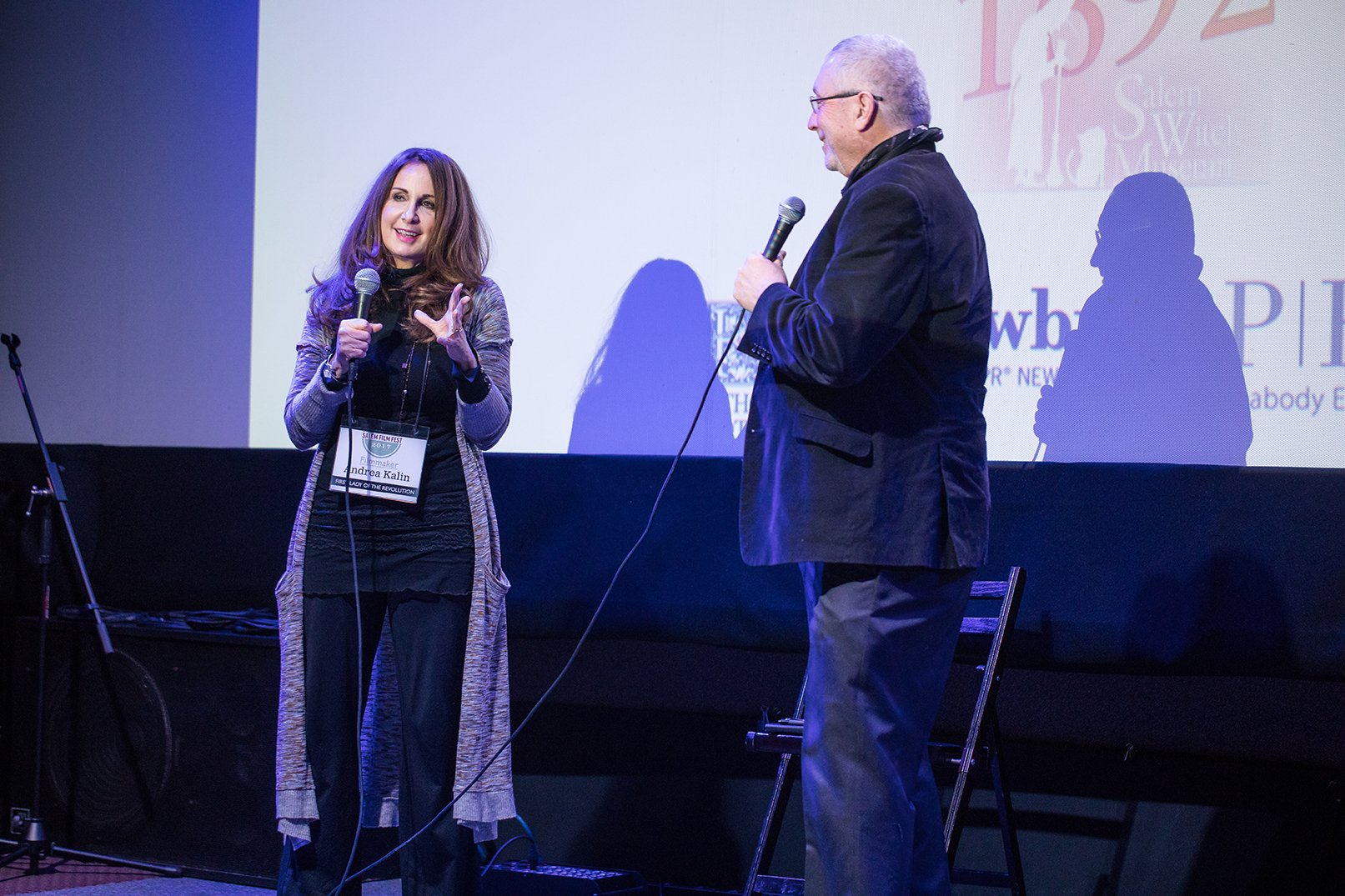
Salem Film Fest 2017 award-winners include co-directors Todd and Jedd Wider and cinematographer Gerardo Puglia, whose doc God Knows Where I Am won the American Cinematographer Magazine Award for Cinematography. In this haunting non-fiction feature, the identity of a homeless woman, whose body and her diary are found in an abandoned New Hampshire farmhouse, reveals a system that fails to protect those who cannot protect themselves:
“All of this year’s contenders for the Cinematography award offered compelling visual interest and reflect excellent work by the projects’ directors of photography and additional camerapeople,” noted American Cinematographer editor and publisher Stephen Pizzello — himself a Salem native. “Each of the entries was well-shot, with assured lighting, composition, close-ups, camera movement and continuity that enhance the storytelling objectives. Ultimately, the winner may have benefitted the most from the cinematographer’s format choice, which adds additional luster to the imagery.”
Discussing the other films nominated for the AC prize, Pizzello said, “In Death by a Thousand Cuts, cinematographer Juan Carlos Castañeda creates a strong sense of place in a true-life drama about the brutal murder of a Dominican park ranger, which stokes the already tense relationship between residents of the Dominican Republic and Haiti. The camera provides emotionally charged perspectives from the key people involved in the dispute, as well as evocative glimpses of life on both sides of the island.
“I Am the Blues, shot by John Price, also makes the most of its locations, taking viewers on a tour of Mississippi’s Chitlin Circuit, where aged but still charismatic blues musicians show off their homegrown skills while sharing lively and poignant memories. The film’s landscapes and the close-up portraiture of the musicians’ faces are equally evocative, reflecting hardscrabble lives that produced authentic, hard-earned artistry.
“Winter at Westbeth, directed and shot by Rohan Spong — with additional cinematography by Duncan Hewitt and Bart Mastronardi — offers a moving, life-affirming visit with the elderly residents of an artists’ community in New York’s West Village. Spong’s observant eye and cinematic aesthetics lend the images a poetic realism; his unconventional style of coverage and creative compositions capture the subjects’ vibrant personalities and effectively convey the inner spark that drives their artistic ambitions.
“The Happy Film uses a whimsical mixture of techniques — including stick puppetry, high-speed photography and stop motion — while following its protagonist, Austrian designer Stefan Sagmeier, through a three-stage “life experiment” to see if meditation, therapy or drugs can help make him a happier person. Director of photography Ben Wolf, Sagmeier and additional cinematographers Julia Dengel and Ben Nabors lend the journey a playful but also melancholic tone that makes Sagmeier’s very personal experiences both engaging and entertaining.
“Ultimately, however, I was most impressed by the cinematography in God Knows Where I Am, which blends film — 16mm, Super 16 and 35mm — with digital formats — captured with the Arri Alexa and Canon C300 cameras — in a way that produces very rich, almost painterly images. Beautiful landscapes blend with shots that roam through an abandoned New Hampshire farmhouse where a mentally ill woman found shelter before tragically starving to death — a downward spiral she faithfully recorded in her diary. These daily reflections on her dire situation are presented in voiceover, but the imagery creates an eerie embodiment of the subject’s lonely final days. Puglia’s atmospheric use of natural light lends interior compositions the quality of still-life canvases that would not look out of place on museum walls, and the visuals place the viewer in the dead woman’s mindset while also approximating her POV.”
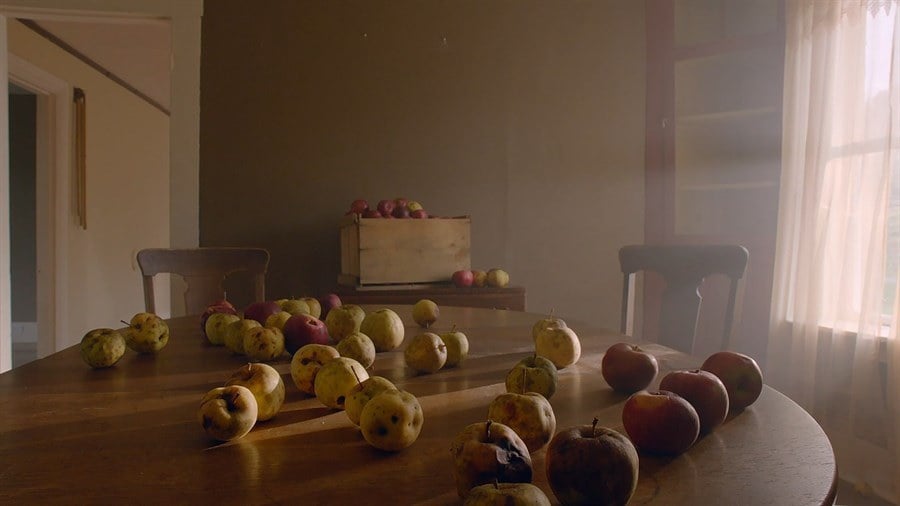
Pizzello concluded, “God Knows Where I Am meets the considerable challenge of showing a story driven by an absent protagonist while also encouraging the viewer to feel the pain of her plight; it’s a triumph of visual narrative that engenders enormous empathy, and a very worthy winner of this year’s prize.”
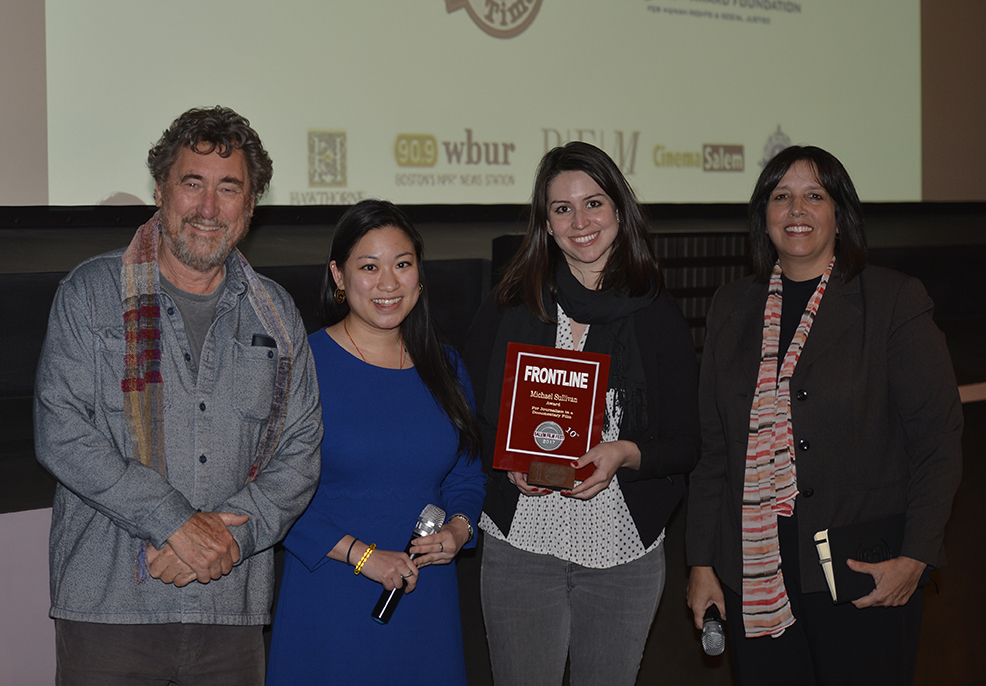
The Salem Film Fest’s other winners included:
- Directors Steph Ching and Ellen Martinez, whose After Spring (two Syrian families who live in the “temporary” Zaatari Refugee Camp in Jordan long for a permanent home as they contemplate an uncertain future) won the Michael Sullivan FRONTLINE Award for Journalism in Documentary and a $1,000 prize.
- Director George Gittoes, whose Snow Monkey (a vivid and startling portrait of war-damaged children and their street gangs in Jalalabad, Afghanistan) won the SFF Special Jury Award.
- Director Daniel Mehrer and editor Andrew Becker, whose Santoalla (a mysterious disappearance looms over a crumbling Spanish village, notorious for years of hostility between its only residents: a progressive Dutch couple and the native Rodriguez family) won the SFF Best Editing Award.
- Director Ben Pender-Cudlip, whose Tethys won the Doc-a-chusetts Pitch and a $5,000 post-production award from Modulus Studios.
- Director and Fitchburg State University student Brian McPartlan, whose Praying for Change won the SFF Mass Reality Check Best Short Award.
More than 30 filmmakers attended the event, leading to particularly stimulating and vibrant post-screening Q&A sessions. George Gittoes, director of the Jury Award-winning Snow Monkey, conducted a riveting session via Skype from his Yellow House in Jalalabad, Afghanistan.
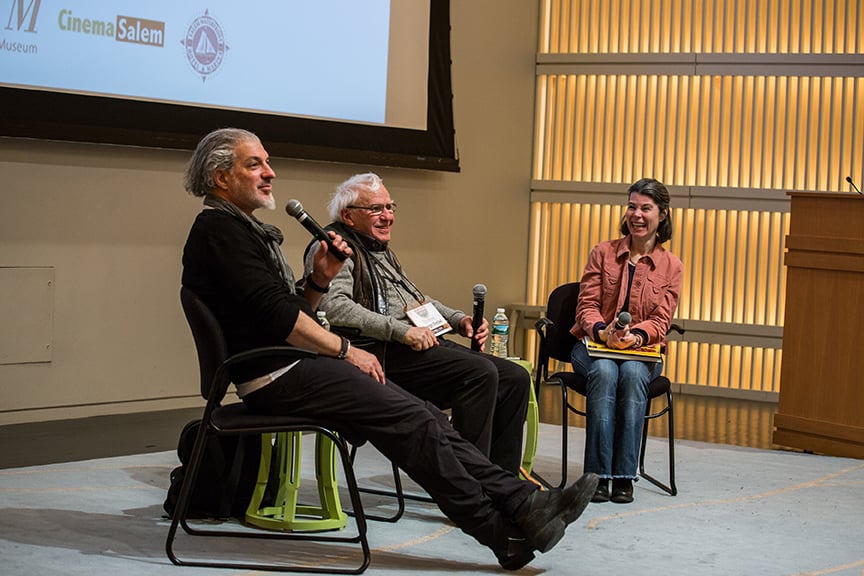
Of the 35 feature and 40 short documentaries screened, over two dozen films were either North American, U.S., New England or Massachusetts premieres.
Special programming highlighted the work of local filmmakers. The “Doc-a-chusetts Pitch” featured four local documentary filmmakers and their work-in-progress projects. The Mass Reality Check and The Five-Minute Student Documentary Contest gave aspiring local college and high school students the opportunity to see their work on the big screen in front of an audience and to engage with local film industry festival collaborators. “Salem Sketches,” eagerly awaited by veteran SFF-goers, are two-minute documentaries based in Salem and created exclusively for SFF by local filmmakers.
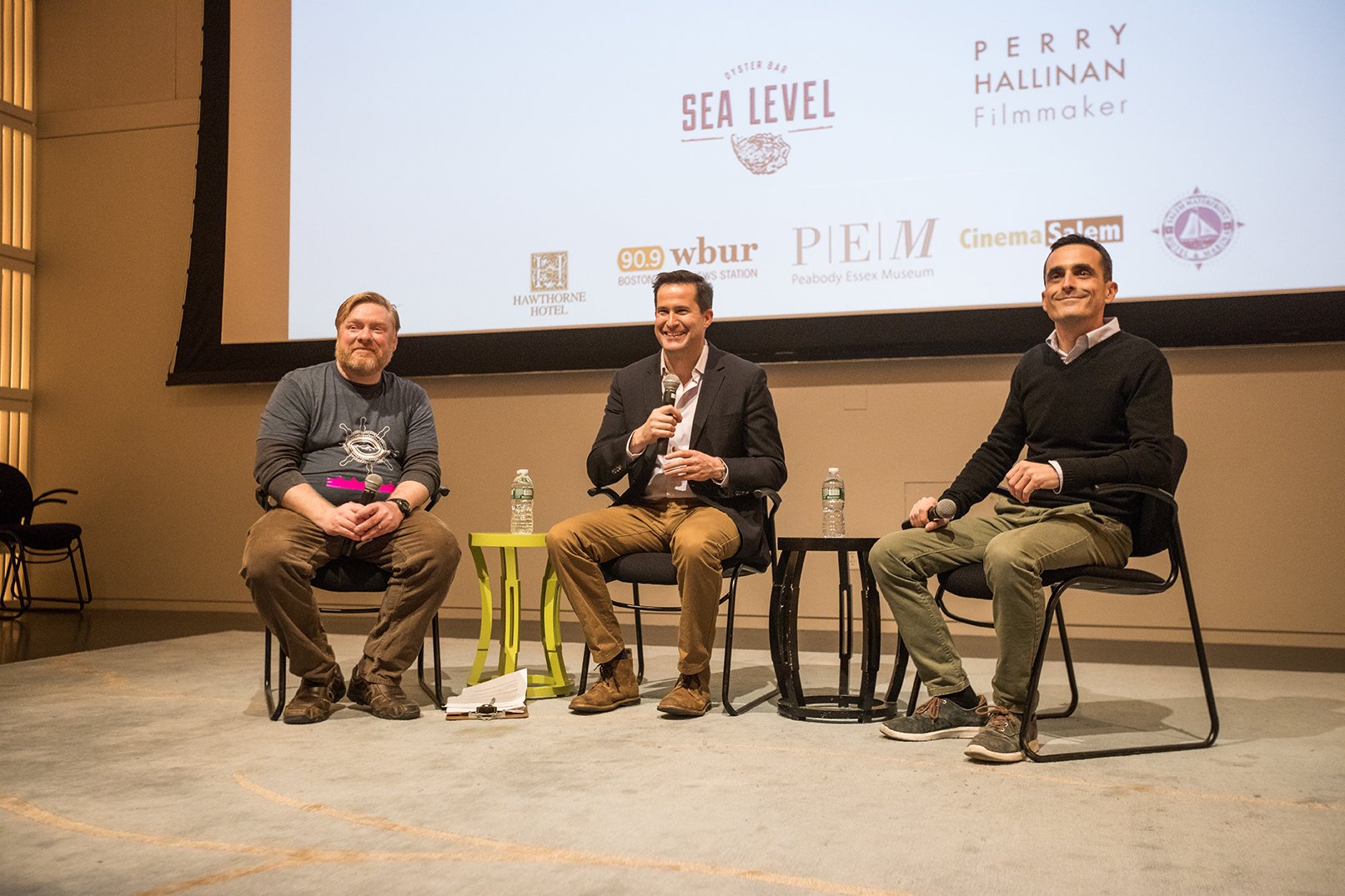
Salem Film Fest is dedicated to community outreach, and this year filmmakers visited Montserrat College of Art and The Phoenix School in Salem. Andrea Kalin, director of the sold out screening First Lady of the Revolution spoke at The Phoenix School.
Additionally, a special screening of What Was Ours at the Peabody Essex Museum focused on outreach to local schools in the community. The screening was made possible by a generous grant issued by the Salem Cultural Council, a local agency which is supported by the Massachusetts Cultural Council, a state agency. Over 65 students from New Liberty Charter School of Salem, Salem High School, and the Phoenix School attended.
Salem Film Fest is an all-volunteer, all documentary film festival that will celebrate its 11th year and the beginning of its second decade next year.




